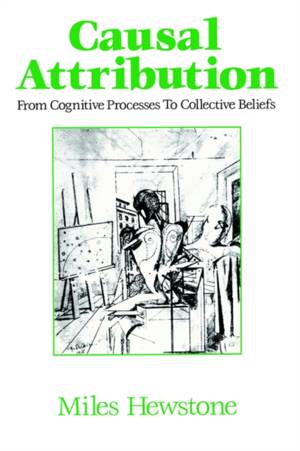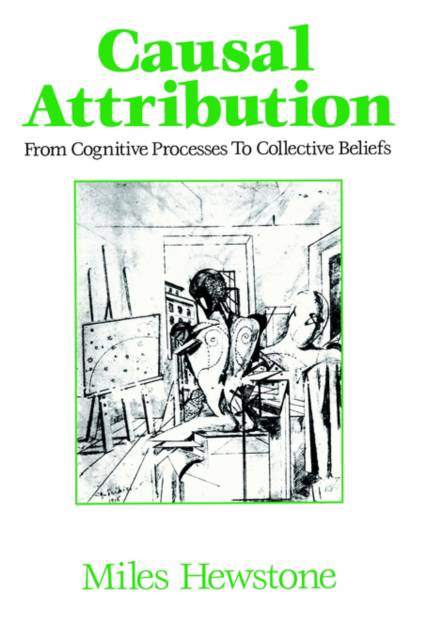
- Afhalen na 1 uur in een winkel met voorraad
- Gratis thuislevering in België vanaf € 30
- Ruim aanbod met 7 miljoen producten
- Afhalen na 1 uur in een winkel met voorraad
- Gratis thuislevering in België vanaf € 30
- Ruim aanbod met 7 miljoen producten
Zoeken
€ 118,95
+ 237 punten
Omschrijving
Attribution theory deals with how people explain social behavior - their causal attributions or common-sense explanations. Causal Attribution provides a major assessment of attribution theory in social psychology during the last forty years. It reviews in detail the variety of theoretical perspectives and established phenomena in attribution theory and provides a unique integration.
A brief introduction to the classic attribution theories is followed by a review of some of the fundamental questions. The core of the book is made up of four central chapters, one on each of Doise's levels of explanation. Intra-personal attribution has studied the logic, cognitive processes and knowledge structures underlying causal attributions. Interpersonal attribution centers on attribution in social interaction and in close relationships, especially marriage. Intergroup attribution highlights the consequences of social categorization: attributions at this level often favor the ingroup and sustain ingroup conflict. Societal attributions link attributions to wider social beliefs, such as conspiracy theories, and refer to phenomena such as poverty, unemployment and riots.
This volume emphasizes the breadth and depth of attribution research, and argues persuasively that an attributional approach has a promising future, as well as a distinguished past, in social psychology.
A brief introduction to the classic attribution theories is followed by a review of some of the fundamental questions. The core of the book is made up of four central chapters, one on each of Doise's levels of explanation. Intra-personal attribution has studied the logic, cognitive processes and knowledge structures underlying causal attributions. Interpersonal attribution centers on attribution in social interaction and in close relationships, especially marriage. Intergroup attribution highlights the consequences of social categorization: attributions at this level often favor the ingroup and sustain ingroup conflict. Societal attributions link attributions to wider social beliefs, such as conspiracy theories, and refer to phenomena such as poverty, unemployment and riots.
This volume emphasizes the breadth and depth of attribution research, and argues persuasively that an attributional approach has a promising future, as well as a distinguished past, in social psychology.
Specificaties
Betrokkenen
- Auteur(s):
- Uitgeverij:
Inhoud
- Aantal bladzijden:
- 332
- Taal:
- Engels
- Reeks:
Eigenschappen
- Productcode (EAN):
- 9780631171652
- Verschijningsdatum:
- 8/01/1991
- Uitvoering:
- Paperback
- Formaat:
- Trade paperback (VS)
- Afmetingen:
- 152 mm x 229 mm
- Gewicht:
- 453 g

Alleen bij Standaard Boekhandel
+ 237 punten op je klantenkaart van Standaard Boekhandel
Beoordelingen
We publiceren alleen reviews die voldoen aan de voorwaarden voor reviews. Bekijk onze voorwaarden voor reviews.











